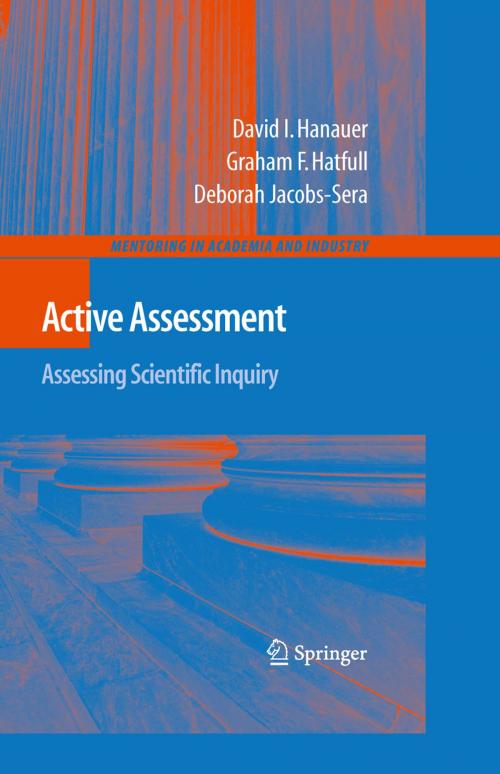Active Assessment: Assessing Scientific Inquiry
Nonfiction, Science & Nature, Science, Biological Sciences, Reference & Language, Education & Teaching| Author: | David I. Hanauer, Graham F. Hatfull, Debbie Jacobs-Sera | ISBN: | 9780387896496 |
| Publisher: | Springer New York | Publication: | April 21, 2009 |
| Imprint: | Springer | Language: | English |
| Author: | David I. Hanauer, Graham F. Hatfull, Debbie Jacobs-Sera |
| ISBN: | 9780387896496 |
| Publisher: | Springer New York |
| Publication: | April 21, 2009 |
| Imprint: | Springer |
| Language: | English |
The term scienti?c inquiry as manifest in different educational settings covers a wide range of diverse activities. The differences in types of scienti?c inquiry can be organized along a continuum according to the degree of teacher control and intellectual sophistication involved in each type of inquiry. Types of scienti?c inquiry can also be de?ned according to whether they produce cultural knowledge or personal knowledge. Authentic scienti?c inquiry is de?ned according to ?ve characteristics: devel- ment of personal and cultural knowledge; contextualized scienti?c knowledge; the progression toward high-order problem solving; social interaction for s- enti?c goals; and scienti?c inquiry as a multi-stage and multi-representational process. The de?nition of scienti?c inquiry that forms the basis for the development of an assessment program consists of a two-part analytical frame: the de?nition of knowledge types relevant to scienti?c inquiry and the de?nition of an organi- tional frame for these knowledge types. Four types of knowledge are signi?cant for the de?nition of a speci?c s- enti?c inquiry program: cognitive knowledge, physical knowledge, represen- tional knowledge, and presentational knowledge. All four of these knowledge types are considered signi?cant. These four types of knowledge are organized in a framework that consists of two intersecting axes: the axis of knowledge types and the axis of stages of a s- ci?c scienti?c inquiry. This framework describes scienti?c inquiry as multi-stage process that involves the development of a series of in-lab outcomes (represen- tions) over an extended period of time.
The term scienti?c inquiry as manifest in different educational settings covers a wide range of diverse activities. The differences in types of scienti?c inquiry can be organized along a continuum according to the degree of teacher control and intellectual sophistication involved in each type of inquiry. Types of scienti?c inquiry can also be de?ned according to whether they produce cultural knowledge or personal knowledge. Authentic scienti?c inquiry is de?ned according to ?ve characteristics: devel- ment of personal and cultural knowledge; contextualized scienti?c knowledge; the progression toward high-order problem solving; social interaction for s- enti?c goals; and scienti?c inquiry as a multi-stage and multi-representational process. The de?nition of scienti?c inquiry that forms the basis for the development of an assessment program consists of a two-part analytical frame: the de?nition of knowledge types relevant to scienti?c inquiry and the de?nition of an organi- tional frame for these knowledge types. Four types of knowledge are signi?cant for the de?nition of a speci?c s- enti?c inquiry program: cognitive knowledge, physical knowledge, represen- tional knowledge, and presentational knowledge. All four of these knowledge types are considered signi?cant. These four types of knowledge are organized in a framework that consists of two intersecting axes: the axis of knowledge types and the axis of stages of a s- ci?c scienti?c inquiry. This framework describes scienti?c inquiry as multi-stage process that involves the development of a series of in-lab outcomes (represen- tions) over an extended period of time.















